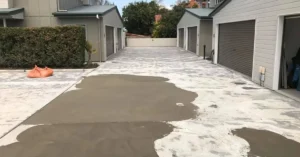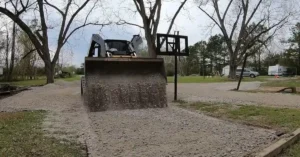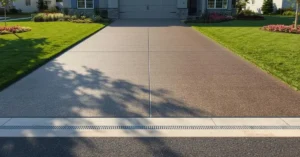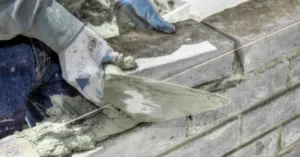The Short Answer: Yes, but Timing and Technique Are Crucial. Sealing a driveway’s joints properly can dramatically extend a driveway’s life, not to mention gain a big boost in appearance. In this detailed primer, we’ll explain why caulking a driveway’s joints is worthwhile, explain how to do them right, and which are the best products for residential maintenance of a concrete.
Why Should You Caulk Your Driveway Concrete’s Water Joints?
Concrete is robust but not completely resistant to environmental stress. Expansion and control joints, or water joints, allow your concrete to expand with shifting temperatures and movement. However, without sealant, the joints allow moisture through underneath the surface.
Key Pros:
- Blocks Water Intrusion: Prevents moisture from undermining the base or creating cavities.
- Reduces Cracking Risks: It protects your driveway from soil movements and freeze-thaw action.
- Improves Aesthetics: Clean, sealed lines give your driveway a well-manicured look.
- Keeps the Pests Away: Sealing keeps bugs, ants, and weeds from digging through joints.
If you are still in doubt, whether or not to seal the water joints of driveway concrete, know that joint breakdown is among the most common reasons for early driveway deterioration.
When to Seal Your Concrete Driveway Joints
It depends on the moment. Seal too early, moisture can be locked in. Seal too late, damage can already be occurring.
Best Time to Seal:
- Once the concrete is fully cured (typically 30 days from installation)
- In dry, mild weather for best adhesion
Signs You Need to Reseal:
- Present sealant is flaking off or absent
- Weeds or ants that sprout from joint spaces
- Ponding of water or prominent cracking
Do I seal water joints of my driveway concrete? Yes, again. If you notice any of these, it’s time.
How to Caulk Water Joints in Driveway Concrete
It is not hard to seal joints, but success relies on proper material and preparation.
Step 1: Clean the Area
Clean off dirt, grime, and aged sealant with a pressure washer or a wire brush.
Step 2: Insert Backer Rod
Insert a foam backer rod into the joint. It prevents oversealing and leaves a stable base for the caulk.
Step 3: Choose the Right Sealant
Select a self-leveling polyurethane or a silicone-based sealant for concrete expansion joints.
Step 4: Apply Sealant
Install from a caulking gun for a consistent bead. Spread with a putty knife.
Step 5: Allow to Cure
Curing normally takes 24 to 48 hours. Do not allow foot or vehicular traffic until dried.
In a situation of planning for DIY, studying best way to remove painted popcorn ceiling is a good idea as a part of general home renovation know-how. For joints, though, stick with concrete-specific ones.
Should You Caulk Water Joints in Driveway Concrete That Are Already Cracked?
It can be filled when the latter are minor and not deep. Those that are large, or deep, may even be required to be cleaned, filled, prior to filling.
Important Tips:
- Apply a concrete crack filler prior to caulking.
- Never apply sealant to dusty or wet surfaces.
- Choose a topcoat rated for outdoor exposure and UV resistance.
If you’re still hesitating to seal water joints of driveway concrete, whether cracked or not—the answer is a definite yes, especially for preventative action.
Common Questions Answered
How often to reseal driveway joints?
Typically every 5–7 years, based on weathering and usage of the driveway.
Is it possible to use concrete for caulking?
No. It is a stiff, non-breathing material that will crack. Caulk is a pliable, expanding, contracting material.
Which is the best sealant?
Polyurethane is widely selected for being durable, stretchy, and long-lasting.
Is winter a suitable season for caulking water joints on concrete driveways?
It is not recommended. Sealant adhesion is best above 50°F.
DIY or Professional Caulking—Which Is Better?
Go DIY If:
- You are familiar with everyday tools
- It is a small driveway that is well maintained
Hire a Pro If:
- Joints are significantly fissured
- You are seeking definite results and a clean finish
- You’re also scheduling a new concrete driveway installation
It is properly installed, with special applicators that provide even, long-term adhesion.
Summary: Should You Caulk Water Joints in Driveway Concrete?
In conclusion, should you caulk water joints in driveway concrete? Yes—without question. Caulking protects your driveway from water damage, enhances curb appeal, and extends its service life. Whether you do it yourself or hire a pro, investing in joint maintenance now saves you from expensive repairs later.
If you’re in Galveston County, TX, and need help with concrete driveway installation or caulking services, contact Mouton Concrete Services for expert, reliable care.





